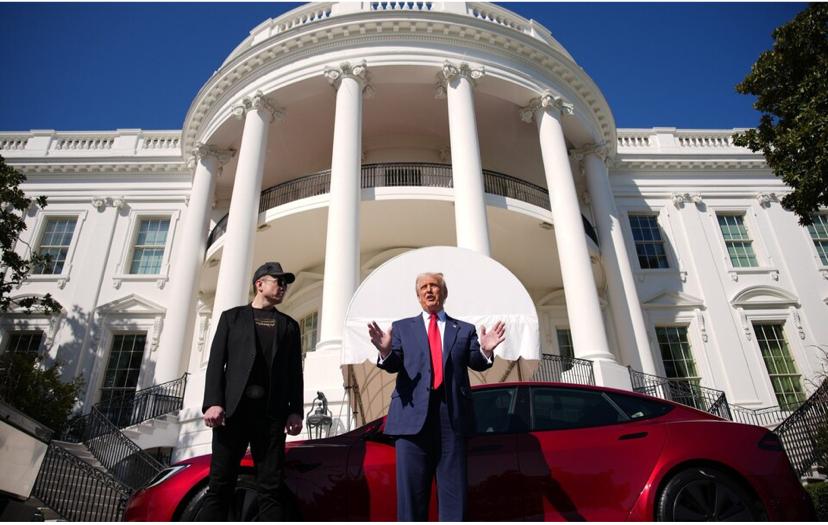Tesla reported a 13% drop in vehicle sales in the first three months of the year, making it the electric vehicle maker’s worst quarter since 2022. It’s another sign that Elon Musk’s once high-flying electric car company is struggling to attract buyers.
The drop is likely due to a combination of factors, including Tesla’s ageing lineup, growing competition from rivals, and backlash over Elon Musk’s alignment with right-wing politics. It also serves as a warning that the company’s first-quarter earnings report, due later this month, could disappoint investors.
The manufacturing giant reported that it delivered 336,681 cars globally in the first three months of the year — a 13% decline compared to the same period last year.
Analysts polled by FactSet expected much higher deliveries of 408,000. The figure was down from sales of 387,000 in the same period a year ago. The decline came despite deep discounts, zero financing and other incentives.
It is Tesla’s biggest year-on-year fall since the second quarter of 2012, when electric cars were in their infancy and the company only sold a handful of vehicles a month.
Tesla shares fell by more than 5pc in pre-market trading in New York, with the figures worse than many analysts had forecast, even after repeated downgrades in recent weeks.
The company said it had lost “several weeks of production” owing to the release of its bestselling Model Y vehicle.
However, Tesla and Mr Musk have been the target of widespread protests in America and Europe over his support for Donald Trump and his role at the department of government efficiency (Doge).
The company’s cars and facilities have also been hit by a wave of arson attacks.Tesla’s most recent release, the futuristic Cybertruck, has failed to find widespread adoption as the brand seems to be under pressure.
Tesla shares have slumped by around a third since the start of the year, as sales have fallen in some of the company’s key markets.
A particularly steep downturn in Continental Europe has been tied to Mr Musk’s support for Germany’s far-Right AfD party.
The company is also struggling with increasing competition from Chinese EV makers, as well as slower-than-expected adoption of electric cars.
This is the second consecutive year that Tesla has recorded a fall in first-quarter deliveries, which now sit at their lowest since 2022. Last year, the company reported its first-ever annual fall in sales.
Mr Trump has sought to defend Tesla against a backlash, promoting the company with Mr Musk on the White House lawn.
The figures contrast sharply with Mr Musk’s own bullish forecasts. Last October, he told investors that Tesla would grow sales by between 20pc and 30pc in 2025.
Wednesday’s figures mean the company continues to lag BYD, the Chinese carmaker, which sold 416,388 electric cars in the first quarter.
In March, Tesla suffered a 41pc sales drop in France, 55pc in Sweden and the Netherlands, and 12.5pc in Norway, where almost all car sales are electric.
In February, sales dropped 76pc in Germany, although they rose in the UK as buyers sought to avoid new taxes on EVs that came into force this week.
Tesla sales fell 11.5pc in China in March, according to the China Passenger Car Association.
The company did enjoy a boost to its energy business, which installs the company’s Powerwall and Megapack batteries. Tesla said it installed 10.4 gigawatt hours of energy storage, up from 4.1 GWh a year earlier.
Mr Musk has said that Tesla will face a hit from Mr Trump’s incoming tariffs, although analysts believe the company may benefit in comparison to rival manufacturers.
“We are not going to look at these numbers with rose coloured glasses [These numbers] were a disaster on every metric,” Dan Ives, an analyst at Wedbush Securities, said.
“The time has come for Musk .It’s a fork in the road moment. The more political he gets with Doge, the more the brand suffers. There is no debate. This quarter was an example of the damage Musk is causing Tesla.”



